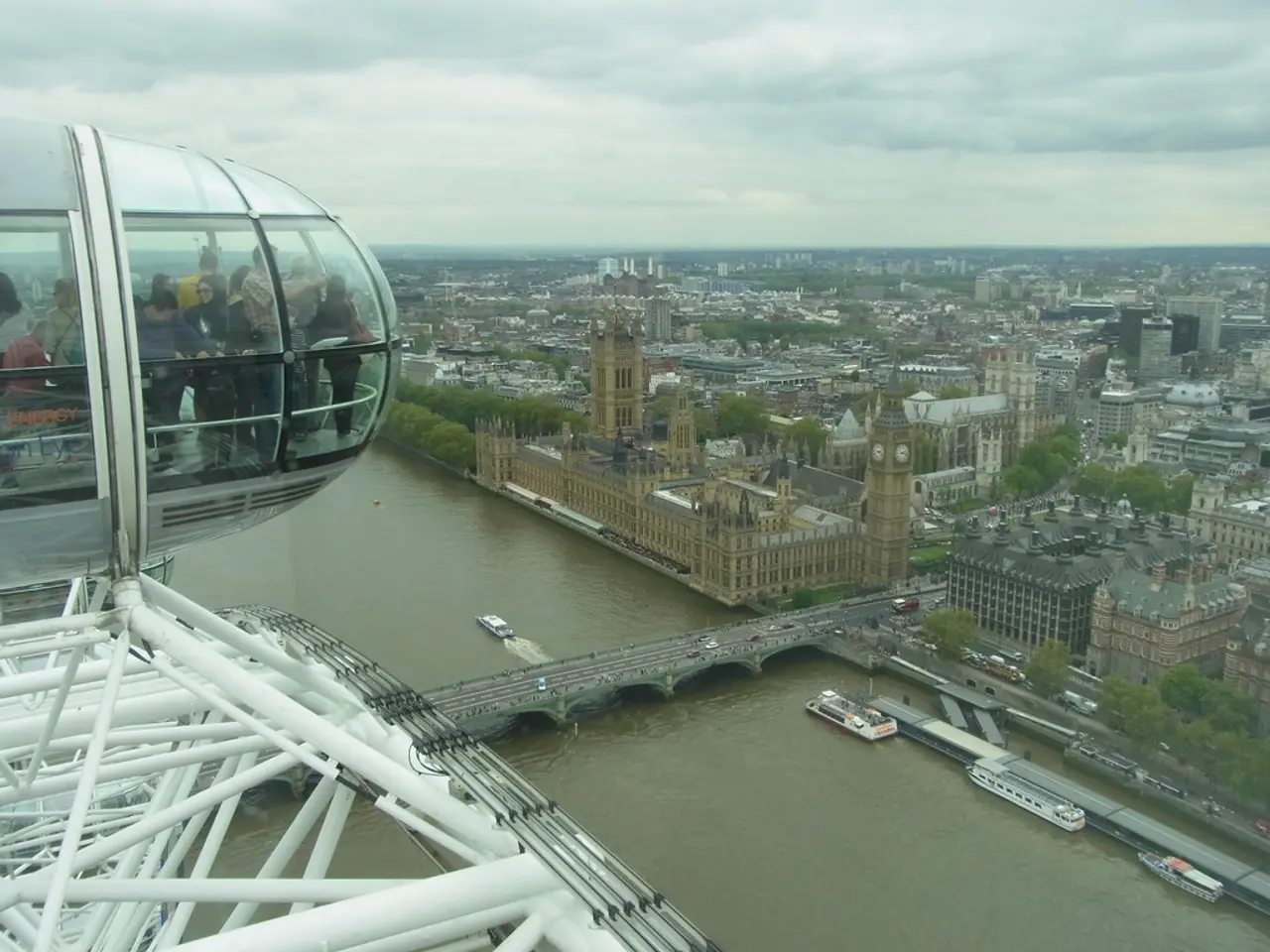UK finds itself in a recurring cycle of mounting debts, according to a leading hedge fund chief - as accelerating taxes, escalating debts, and subdued economic growth persist
The UK economy is facing a potential crisis, with experts such as Ray Dalio, Richard Hughes, and related financial analysts issuing stark warnings about the impact of higher taxes and rising debts on the country's economic growth.
These warnings stem from the UK government's borrowing, which has exceeded forecasts. Debt-interest payments have surged, pushing the budget deficit higher. In June 2025, the deficit reached £20.7 billion, £6.6 billion more than a year earlier, reflecting rising debt servicing costs.
The escalating debt levels have led to speculation about inevitable higher taxes to fund government spending and stabilize public finances. Chancellor Rachel Reeves is under political pressure while maintaining fiscal rules aiming to fund government spending with tax receipts by the end of the decade.
The long-term projection of UK debt warns of an unsustainable path, with government debt potentially soaring above 270% of GDP by the 2070s. This escalation is driven by rising borrowing needs, an ageing population, and fiscal impacts related to climate change.
Economic growth is predicted to remain subdued, while inflation and borrowing costs rise, compounding fiscal stress. This environment constrains fiscal flexibility, making tax hikes more likely but also potentially dampening investment and productivity.
Richard Hughes, chair of the Office for Budget Responsibility (OBR), has highlighted these risks as part of broader fiscal challenges that require decisive policy action to avoid a crisis. Without timely measures, the debt burden may crowd out other government spending and limit economic resilience.
Ray Dalio, the 75-year-old founder of Bridgewater Associates, has added his voice to the chorus of concerns. He has stated that higher taxes, rising debts, and sluggish growth are causing warning signs to 'begin to flash and flicker'. He also warned that financial deterioration can lead to social and economic deterioration, causing migrations. If 5% of the top tax-paying population were to leave, over 35% of the tax revenue could be lost.
Dalio has also cautioned that the Government's attempts to raise funds by increasing taxes could lead to a downward spiral for the economy. He suggested that the war between the left and the right should end, as difficult choices will need to be made.
The UK's national debt currently stands at £2.9 trillion, and it is expected to hit £3 trillion either this financial year or next. Analysts have warned that the Chancellor is facing a potential black hole of up to £30 billion in the Autumn Budget.
Rachel Reeves is reportedly planning to increase levies and cut spending further in October to avoid breaking her fiscal rules. However, her plans may face opposition, as the IMF has cautioned that she may need to take drastic action on spending if she maintains her pledge not to hike taxes on working people.
In summary, the combined warnings emphasize that higher taxes and rising debts could impose significant constraints on the UK economy by reducing growth prospects, increasing government debt servicing costs, and potentially precipitating a fiscal crisis if left unaddressed. These outcomes underline the need for balanced fiscal strategies that address structural demographic and environmental pressures while supporting economic expansion.
- Policy-and-legislation changes, particularly in the realm of personal-finance and taxes, are central to addressing the looming financial crisis in the UK due to escalating debts and higher taxes.
- General-news outlets frequently report on the potential impact of higher taxes and rising debts on the UK economy, highlighting the significance of the issue in political discussions and finance.
- As the UK faces a potential fiscal crisis, with rising debts and higher taxes threatening the economy's growth, governments and financial analysts are advocating for prudent policy-and-legislation featuring fiscal responsibility and balanced personal-finance strategies.




